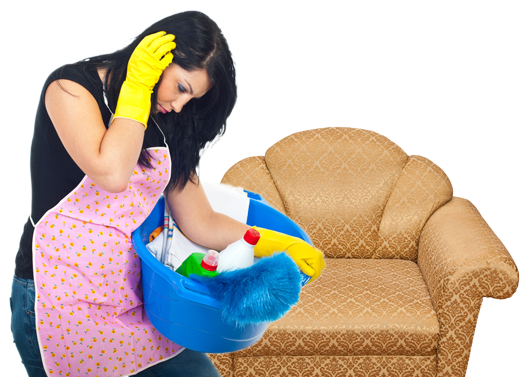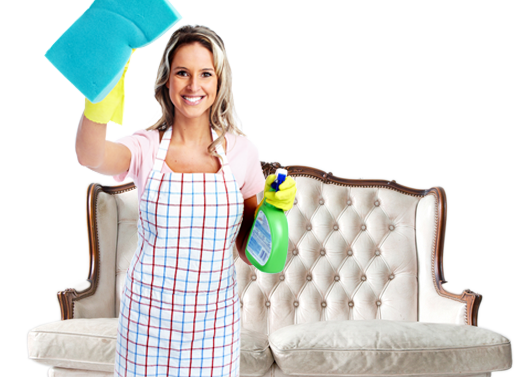Cleaning Your Jewelry: Techniques for Every Piece
Posted on 28/06/2025
Cleaning Your Jewelry: Techniques for Every Piece
Jewelry is more than just an accessory; it is an expression of personality, cherished memories, and oftentimes, a valuable investment. Keeping your collection sparkling not only enhances its beauty but also extends its lifespan. This comprehensive guide delves into proven techniques for cleaning your jewelry, whether it's gold, silver, diamonds, gemstones, pearls, or costume pieces. Learn how to maintain each cherished item and discover expert tips for safe, at-home cleaning.

Why Regular Jewelry Cleaning Matters
- Preserves Brilliance: Everyday wear exposes your pieces to oils, lotions, and environmental pollutants, causing dullness.
- Prevents Tarnish and Damage: Especially important for metals such as silver, regular cleaning prevents unsightly tarnishing.
- Maintains Value: Clean, well-maintained jewelry retains its value better over time.
- Health and Hygiene: Jewelry can harbor bacteria and allergens, making cleaning vital for sensitive skin.
General Essentials for Jewelry Cleaning
Before using any cleaning methods, make sure you have the following tools:
- Soft, lint-free cloths
- Mild dish soap (*avoid harsh chemicals*)
- Soft-bristle toothbrush or jewelry brush
- Lukewarm water
- A bowl or strainer for rinsing
- Specialty jewelry polishing cloths
Tip: Always clean jewelry over a soft surface or a basin with the drain covered to avoid losing small parts!
Cleaning Gold Jewelry: Keeping the Luster Alive
Why Does Gold Jewelry Dull?
Although gold doesn't tarnish as quickly as other metals, exposure to body oils, sweat, and lotions can cause buildup, dulling its shine.
Best Techniques for Cleaning Gold Jewelry
- Soak: Combine a few drops of mild dish soap with lukewarm water. Soak the gold jewelry for 15-30 minutes.
- Gently Brush: Use a soft toothbrush to remove dirt from crevices, especially intricate designs and settings.
- Rinse and Dry: Rinse thoroughly under lukewarm water and dry with a soft, lint-free cloth.
For stubborn spots, a sprinkle of baking soda on the toothbrush can add gentle abrasiveness, but avoid vigorous scrubbing.
Silver Jewelry: Banishing Tarnish
Why Does Silver Tarnish?
Silver reacts with sulfur in the air, causing a black tarnish. Perfume, hairspray, and even skin acidity can accelerate the process.
Cleaning Your Silver Jewelry Safely
- Soap and Water: For light tarnish, use the same soap-water solution as gold jewelry.
- Baking Soda Paste: Mix three parts baking soda with one part water. Gently rub the paste onto silver using a soft cloth; rinse and dry.
- Aluminum Foil Bath: Line a bowl with aluminum foil, add hot water, a tablespoon of baking soda, and your silver. Let it soak for 2-5 minutes, rinse and buff.
Avoid silver dips for delicate, oxidized, or antique pieces, as these can strip intentional patinas.
Diamond and Gemstone Jewelry Cleaning
Why Gemstones Require Special Attention
Diamonds and colored gemstones can trap oil and dust beneath prongs or in settings, dimming their sparkle. However, gemstones vary in hardness and sensitivity - always check if your specific stone needs unique care.
How to Clean Diamond and Gemstone Jewelry
- Soak: Most diamonds and hard precious stones (sapphire, ruby) can handle soaking in warm soapy water.
- Brush: Use a soft-bristle brush for gentle cleaning. Pay special attention to the area beneath the stone.
- Rinse and Dry: Rinse thoroughly to remove soap, and dry with a soft cloth.
Note: Avoid harsh chemicals like bleach or acetone. For softer gemstones (emerald, opal, turquoise, pearls) skip soaking, as excess moisture can damage them.
Pearl Jewelry: Gentle Care for Timeless Beauty
The Vulnerability of Pearls
Pearls are organic and much softer than most gemstones, sensitive to acids, humidity, and abrasives. Cleaning your pearls should always be done with the utmost care.
Pearl Cleaning Techniques
- Damp Cloth Wipe: After each wear, wipe pearls gently with a clean, damp cloth to remove perfumes and perspiration.
- Occasional Wash: For a deeper clean, use a soft cloth dipped in lukewarm, soapy water (mild soap only). Wipe each pearl gently, then dry with a soft towel.
*Never soak pearl jewelry or use ultrasonic cleaners, as these can weaken the string or damage the nacre (outer layer).*
Cleaning Costume and Fashion Jewelry
Risks with Non-Precious Materials
Costume jewelry of base metals, rhinestones, or glued settings requires special care, as water or chemicals can remove finishes or dissolve adhesives.
Safe Techniques for Costume Jewelry
- Wipe gently with a barely damp cloth; avoid soaking.
- For intricate designs, use a soft-bristle brush, working delicately to avoid dislodging stones.
- Let air dry fully before storing.
For stubborn spots, use a cotton swab slightly moistened with water; never submerge.
Ultrasonic Cleaners: When and How to Use
Ultrasonic cleaners use high-frequency sound waves to dislodge dirt and grime. While highly effective for many types of jewelry (especially solid gold, platinum, hard gemstones like diamonds), they can damage softer gems, pearls, enamel, or glued settings.
- Safe for: Diamonds, sapphires, rubies, solid gold, platinum.
- Not safe for: Pearls, emeralds, opals, turquoise, costume jewelry, antique pieces.
Always consult a jeweler before using ultrasonic cleaning on unknown or delicate stones.
Storing and Maintaining Clean Jewelry
Prolonging the Shine
- Store each piece separately in a soft pouch or lined box to avoid scratches and tangles.
- Keep silver in anti-tarnish bags or use silica gel packs to absorb humidity.
- Wear jewelry after applying lotions and perfumes to minimize contact with chemicals.
- Regularly inspect for loose stones or clasps and address repairs promptly.
Professional Jewelry Cleaning: When to Seek Expert Help
If your treasured jewelry features intricate filigree, delicate pave settings, or valuable stones, consider a professional clean once or twice a year. Jewelers use specialized equipment and have the expertise to spot minor repairs before they become costly.
Tip: Annual professional cleaning can also include polish, inspection, and secure tightening of settings.
Common Mistakes to Avoid When Cleaning Jewelry
- Using toothpaste, baking powder, or abrasive cleaners on soft gems or delicate metalwork.
- Soaking glued-in stones or costume pieces in water.
- Using bleach, acetone, or ammonia on organic materials or plated jewelry.
- Using ultrasonic cleaners without checking the compatibility of specific stones or settings.
When in doubt, consult a professional to avoid unintentional damage to your cherished valuables.
DIY Cleaning Recipes and Solutions for Jewelry
Simple Home-Made Cleaner for Most Jewelry Types:
- Mix one cup of warm (not hot) water with a few drops of mild dish liquid.
- For extra shine (except pearls and soft gems), add one teaspoon of household ammonia.
- Always rinse well and dry thoroughly.
Baking soda is effective for silver, but always use caution to avoid scratching softer metals or stones.

Frequently Asked Questions - Cleaning Your Jewelry
- How often should I clean my jewelry?
For daily-wear pieces, a gentle clean every two weeks maintains sparkle. Storeaway or special pieces can be cleaned monthly or as needed. - Can I use vinegar to clean jewelry?
Vinegar is safe only for sterling silver and gold (not plated), but never use it on pearls or porous gemstones. - What's the safest way to dry jewelry?
Always use a soft cloth; avoid tissues or paper towels, which can scratch metal and stones. - Can I clean all types of jewelry with the same technique?
No; each material (gold, silver, pearls, costume jewelry) requires a tailored approach for best results and to avoid damage.
Conclusion: Enjoy Sparkling Jewelry for Years to Come
Caring for your jewelry is more than preserving aesthetics; it's about honoring memories, heritage, and your unique style. By following the right techniques for cleaning every piece in your jewelry box, you ensure brilliant shine, safety, and the continued value of your beloved gems and metals. Use these expert-approved methods to master jewelry cleaning at home and keep every piece as dazzling as the day you first wore it.
Remember, when in doubt, always seek professional advice to safeguard your treasures. With proper care, your collection will continue to shine, turning heads and telling stories for generations.





